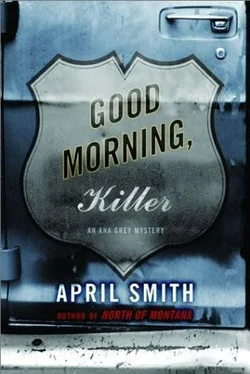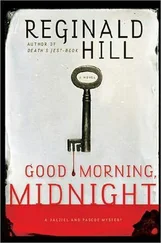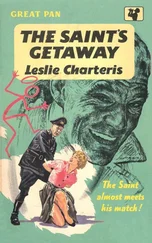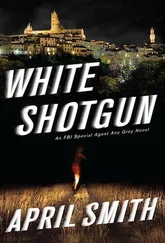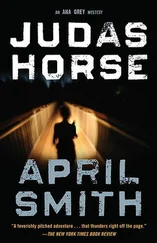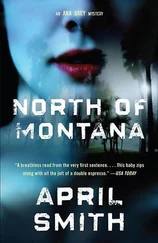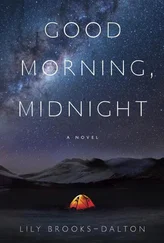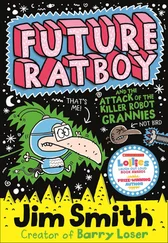The sky was growing lower, as if it would touch the ground and reclaim the planet, sucking up the horizon and everything that lay before it in streaming tunnels of ashen cloud. Whippy branches of ocotillo cactus jerked in spasms in a sweeping wind-colored brown. Raindrops sleeted the windshield, and then it went dry. I detested California.
We were moving at a good clip down the slick highway — a sheriff’s van, the prisoner in an unmarked sedan and then the coroner. We were hunting bodies. Andrew’s funeral had been the day before, but the harvest was not done. There were still more corpses in the ground for the digging, or at least that is what Ray Brennan had boasted to his cell mate.
I was free. The DA dropped the charges based on Andrew’s confession, taped in the living room just before his surrender, in which he stated that he had attacked me with intent to commit bodily harm because I had knowledge of the Mission Impossible bank robbery. Our relationship was falling apart at the time, he said, and he was fearful that I would expose him.
Andrew took sole responsibility for the heist, providing details of how he had planned it, all the way back to the class he gave on bank security. He trained those two managers so when he appeared as a robber wearing a ski mask, they would unwittingly follow his commands. He used a weapon to threaten them, so he would not have to speak; so they could not recognize his voice. He had severed the hinges in the rooftop hatch weeks before, waiting until he knew there would be a large delivery of cash. Since Andrew had taught the opening procedures, he knew exactly how many minutes he had inside the vault and how long it would take for the police to respond. He expected a take of over a million dollars, but all he finally put in the trunk of his official car before driving to the police station to report for work that morning was $52,674 because the rest had been locked in empty safety deposit boxes overnight. He had given the money as a gift to Margaret Forrester to care for her children in the aftermath of the death of his best friend.
Deputy District Attorney Mark Rauch was forced to concede that I had responded to the attack in self-defense, and except for the obligatory blast from Galloway for violating policy, and serving time off without pay, reinstatement at the Bureau had all the drama of renewing your driver’s license. There were mumbled condolences, mostly avoidance, taking refuge in the work. Now I was rolling in the sedan with Ray Brennan and Special Agents Todd Hanley and Jason Ripley on a tip from the snitch who had been placed in Brennan’s cell, a giant three-hundred-pound murderer named King Tut.
King Tut had been a popular and lovable custodian, a really sweet guy, who bludgeoned two kids to death with a shovel when he found them having sexual intercourse in the high school parking lot after a basketball game. King Tut had sad, puzzled eyes like an elephant who does not understand what he did to deserve being an elephant. You might mistake the look in those eyes as kindly, when actually they just rolled around in their sockets like wet black marbles, expressing nothing. When you had two head cases locked up together, neither could read the other anyway, like blind men batting sticks.
Brennan had to brag, had to tell his secrets. Not a surprise. Nor would I have been surprised if the things he told King Tut contributed to the coronary that ultimately felled the big guy. King Tut read the Bible daily and so did his wife, who told the prison minister her husband had been put in a cell with the devil, and could he please do something about it?
Brennan told King Tut he had raped twenty-seven girls and women and been forced by circumstances beyond his control to murder three. We already had leads on eight more victims and corroborating evidence on the young woman who had been abducted from the Georgetown mall, so twenty-seven was not an impossible number. Brennan described sadistic dreams and visions that made King Tut sweat as he repeated them to us in an air-conditioned interrogation room. He went through an entire carton of Kit Kat bars. Brennan claimed to have taken jewelry from the victims and buried it with the three bodies out in the desert near the military base at Twentynine Palms. That would have been sacred ground to him.
The Sheriff’s Department had driven the prisoner to the alleged burial site twice before. Each run had to be orchestrated in advance so the fact this one fell the day after Andrew’s funeral was one of those random kicks in the head the universe occasionally deals.
The night before he was to show us the bodies, Brennan refused to eat and became so agitated in his cell they called off the search, but then he calmed down and slipped into some kind of zombie zone. In the car, he slumped over, sleepy and mute in handcuffs and leg irons, as if neutralized by whatever antipsychotic cocktail the docs cooked up. His hair was matted. He had not shaved.
I fingered the tiny metal box in my pocket that held dirt from Andrew’s grave. I had stolen it, after the thousand-man entourage of police officers and media people and girlfriends and family were gone, after watching the spit-and-polish parade to the cemetery from a doughnut stand across the street, a landmark from the fifties with a sagging sculpture of a doughnut on the roof. When you looked closely, the painted fabric that covered the wire had weathered off the frame, as if these biting desert winds had zipped a hundred miles west to pick off any remaining life, until it had become the gesture of a doughnut more than anything else.
The big clock had begun to tick again as I sat in that plastic chair, half smothered by the heavy bouquet of sugar and coffee and yeast, in the heat of the sun intensified by the plate glass window. If I can make it through this second, I can make it through the next; the duty weapon sat on my hip like a living thing.
All I wanted was to be beside him, inside that coffin.
My foot was tapping to an inaudible tune like the bagpipes beyond the glass I could not hear. Margaret Forrester and Officer Sylvia Oberbeck were at the grave site, dressed in black, and I did not begrudge them. It was not that Andrew Berringer had been heartless or insatiable — he had needed us, all three. Margaret was the hellcat, Oberbeck his friend — and I? I was Andrew’s mirror, we were mirrors for each other, like twins, who simply know. I just had to look inside myself to see what Andrew wanted and why he’d set it up the way in which he had, but as I explained to him from the doughnut shop, he had to understand the ball was in my court now. It was his game and he had left me with the goddamn ball.
The pillbox had belonged to my mother. There was a rose enameled on the lid. She used it to carry saccharine tablets to sweeten her coffee, and I associate the box with the waxy scent of red lipstick that would spiral out of its mysterious cylinder, that could transform her worn face into that of a movie star. Funny, isn’t it? Now we know saccharine causes cancer, and my mother died of cancer, but she would drop those minuscule pills into the wide black pool of her coffee with such élan — and sometimes I would do it for her, fascinated by the miniature tongs that came with the box for that purpose. The tongs were lost now and the box filled with dirt, and I held it in my pocket on the drive through the desert.
Jason Ripley was in the back with me and the prisoner, Todd Hanley was up front with the driver. Nobody talked much during the two-hour ride. I did not think it would ever get easier with Jason, but it didn’t matter. Neither of us needed the other anymore.
We made a pit stop at a gas station that was the only service for fifty miles. It was part general store — racks of white bread, huge bags of ice — and part tourist trap, with bins of quartz crystal and fossils and skeletons of small desert animals in plastic bags. There were real scorpions inside crystal paperweights.
Читать дальше
